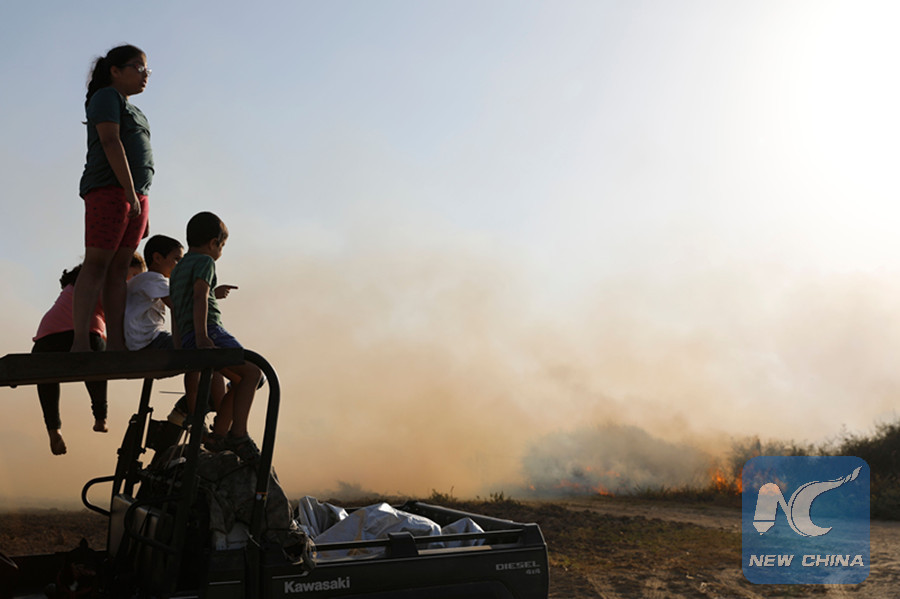
Israeli children look at fire after a kite was reportedly sent by Palestinian protesters from across the border to burn fields in Kibbutz Beeri near the border with the Gaza Strip on June 5, 2018. (AFP photo)
GAZA, June 16 (Xinhua) -- An Israeli army drone fired on Saturday evening one missile at a group of Palestinian young men, wounding at least two of them, medics said.
The young Palestinians, in east of al-Bureij refugee camp in central Gaza Strip close to the border with Israel, were fired at when they were launching balloons carrying fire bombs into Israel, and two were moderately injured by the shrapnel of a missile, said the Health Ministry in Gaza.
It is the third time this week that Israeli army drones fired at Palestinians who released kites and balloons carrying firebombs and Molotov cocktails that landed on agricultural fields in Israel and caused huge fires in the area east of the Gaza Strip.
The Israeli media earlier estimated that 25 square km of agricultural fields were burned and badly damaged.
Releasing such kinds of kites and balloons is part of the rallies and protests organized by the Palestinians, which started on March 30 in five separate locations in eastern Gaza Strip, close to the border with Israel.
Earlier on Saturday, three Gaza young men infiltrated into Israel after they cut the fence of the border east of al Bureij refugee camp in central Gaza Strip, Israeli and local Palestinian media in Gaza reported.
The reports said that the three young men tried to vandalize the engineering machines and equipment to destroy tunnels dug underneath the border between Gaza Strip and Israel.
An Israeli army force opened fire at the three young men who managed to escape from the area into Gaza. Reports said that one of the three was hit, according to Israeli media and local Palestinian media in Gaza.
Ashraf al-Qedra, the health ministry spokesman in Gaza, told reporters that 128 palestinians have been killed since March 30 and around 14,000 injured. About half of the injured were shot by live ammunition, and many of them are still in critical condition.

